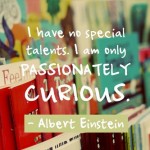 Curiosity plays a key role in many aspects of working life. For instance, a study a few years ago found that it’s central to our ability to learn effectively. It also stands to reason that curiosity plays a crucial role in our ability to innovate, and that’s what a recent study set out to explore.
Curiosity plays a key role in many aspects of working life. For instance, a study a few years ago found that it’s central to our ability to learn effectively. It also stands to reason that curiosity plays a crucial role in our ability to innovate, and that’s what a recent study set out to explore.
The research found that when people exhibited strong curiosity traits in personality tests, they subsequently performed significantly better in creativity tasks. What’s more, when the curiosity was characterized as diversive, such that the person was keen to explore new and unfamiliar things, this correlated with them also coming up with creative solutions to problems.
Adaptable employees
The ability for employees to adapt to the rapidly changing times we find ourselves in is a common desire from HR leaders across the world, whether it’s adapting their own skills or coming up with creative solutions to the problems they face.
“But if you look at job descriptions today, employers often say they are looking for curious and creative employees, but they are not selecting candidates based on those traits,” the authors say. “This research suggests it may be useful for employers to measure curiosity, and, in particular, diversive curiosity, when hiring new employees.”
Of course, it’s perfectly intuitive to connect curiosity with creativity, so it’s tempting to dismiss the study as stating the obvious, but it does provide us with a better idea of just what kind of curiosity does the job.
Diversive curiosity
Diversive curiosity is particularly valuable in solving early stage problems as it is effective at gathering a lot of information to help solve the challenge. This in turn lends itself to the generation of a lot of early-stage ideas that can be tested.
By contrast, if people have specific curiosity traits, it tends to be much more specific and problem focused. This can be more of a negative thing than a positive.
“Because it has a distinct effect, diversive curiosity can add something extra in a prospective employee,” the authors say. “Specific curiosity does matter, but the diversive piece is useful in more abstract ways.”
Central to the success, or failure, of the creativity task was the information gathering stage, and this is especially so for those who are not naturally creative. For instance, it emerged that a lack of natural creativity can be overcome by asking questions and spending time reviewing materials at the early stages of the creative process.
“Creativity to a degree is a trainable skill,” the authors conclude. “It is a skill that is developed and can be improved. The more of it you do, the better you will get at it.”
So there’s hope for even the least creative among us.